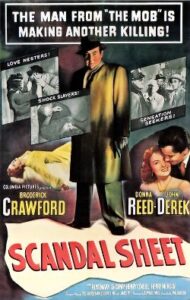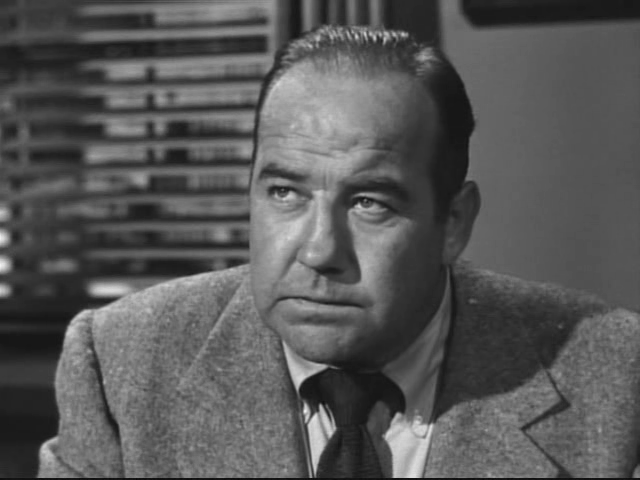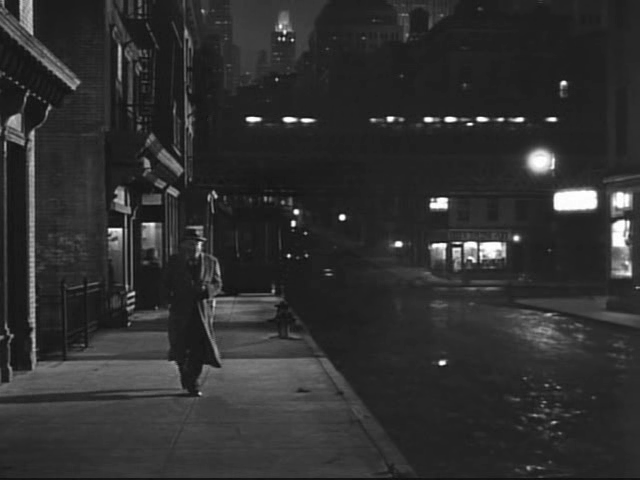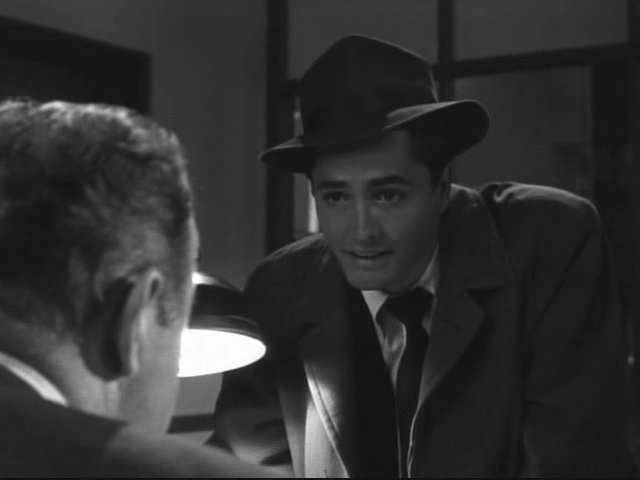Scandal Sheet (1952)
“Too bad the guy used an axe on her head; spoiled some pretty pictures for me.”
|
Synopsis: |
|
Genres, Themes, Actors, and Directors:
Review: Unfortunately, despite his best efforts, John Derek is too much of a pretty boy for his role and is never entirely convincing as the eager-beaver rookie journalist who places Crawford on such a pedestal (though his opening scene with Harry Morgan as his sidekick photographer is a zinger). Meanwhile, Derek’s rocky interactions with Donna Reed (trying hard in a weakly written role as his moralistic female colleague) seem to be included in the screenplay merely to provide a requisite love interest subplot. In addition, while its central premise is inherently exciting, the script is predicated on a series of implausible coincidences, and many scenes simply don’t ring true (c.f. a disturbingly paternalistic sequence near the end of the film involving a bar full of stereotypical “winos”). However, the movie possesses enough noir-ish atmosphere (courtesy of Burnett Guffey‘s stark cinematography), enjoyably hardboiled dialogue, and genuine suspense that film fanatics will surely be curious to check it out at least once. Note: Fuller was apparently so unimpressed by Scandal Sheet that he vowed to helm all his own flicks in the future — and did. Redeeming Qualities and Moments: Must See? Links: |




One thought on “Scandal Sheet (1952)”
Not a must – but not a waste of time either.
Re-watched this recently cause it’d been years since I’d seen it – and I remembered it as being pretty good. And since I’m a huge Fuller fan, I thought to give it another whirl. It was an odd thing to find that it was not as good as I remembered. Funny how films can sometimes do that.
However, if Fuller was that “unimpressed” with the adaptation of his novel – one with which he had no direct involvement – he may have been a tad harsh. It’s not a bad film (Karlson is certainly not a hack director) but – for many reasons brought forward in the assessment – it’s not a great one either. And its flaws do detract from it.
The main problem, maybe, is that it’s a little too one-note. So there aren’t many places for the film to go and there isn’t much room for surprise. (Although it *is* surprising to see DeCamp in such a relentlessly shrill role/performance.) As well, Reed – serving as morality’s mouthpiece and little else, it seems – does kind of begin to seem unlike a real person.
All that said, Crawford is fascinating to watch throughout. It’s especially gratifying watching him squirm.